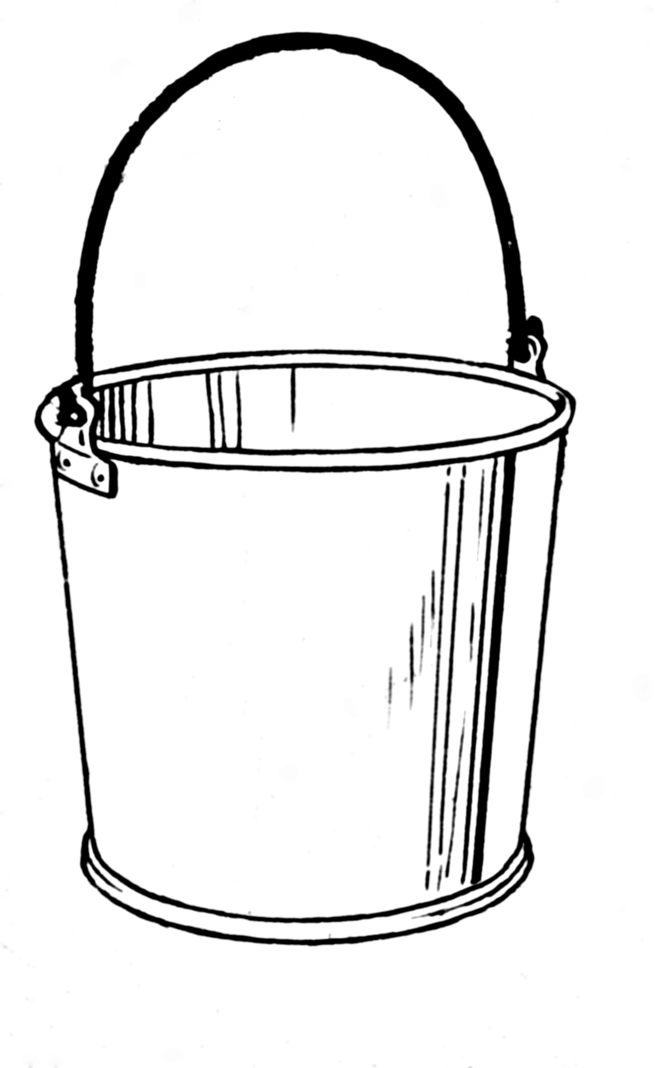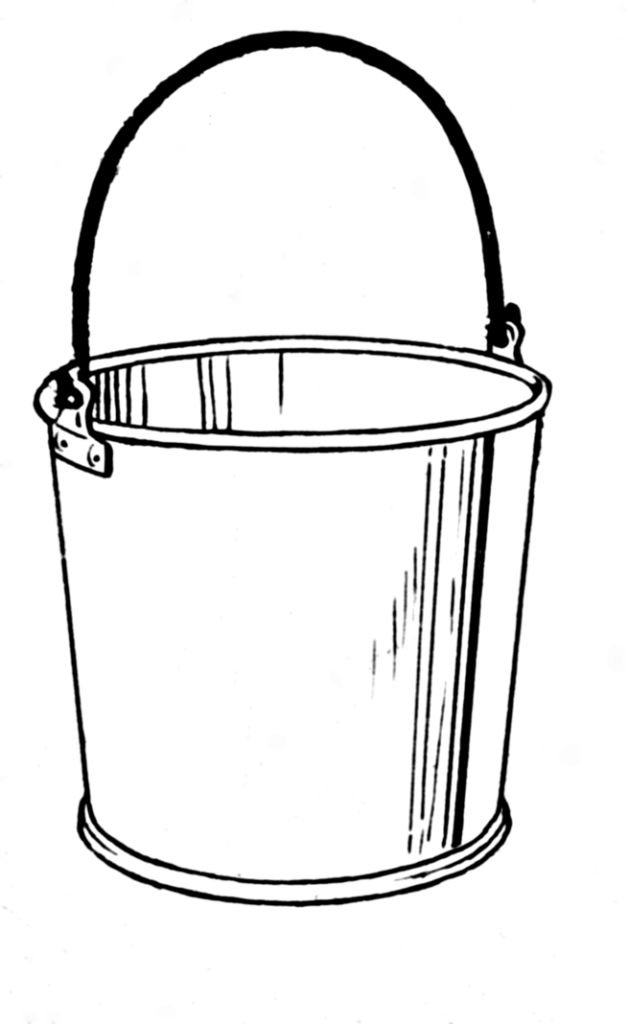
-
Pail
A bucket is typically a watertight, vertical cylinder or truncated cone or square, with an open top and a flat bottom, attached to a semicircular carrying handle called the bail.A bucket is usually an open-top container. In contrast, a pail can have a top or lid and is a shipping container. In common usage, the two terms are often used interchangeably.
-
Pail (noun)
A vessel of wood, tin, plastic, etc., usually cylindrical and having a handle — used especially for carrying liquids, for example water or milk; a bucket (sometimes with a cover).
“The milkmaid carried a pail of milk in each hand.”
-
Pail (noun)
(In technical use) A closed (covered) cylindrical shipping container.
-
Pall (noun)
Fine cloth, especially purple cloth used for robes.
-
Pall (noun)
A cloth used for various purposes on the altar in a church.
-
Pall (noun)
A piece of cardboard, covered with linen and embroidered on one side, used to cover the chalice.
-
Pall (noun)
A pallium (woollen vestment in Roman Catholicism).
-
Pall (noun)
A figure resembling the Roman Catholic pallium, or pall, and having the form of the letter Y.
“pairle”
-
Pall (noun)
A heavy canvas, especially one laid over a coffin or tomb.
-
Pall (noun)
An outer garment; a cloak or mantle.
-
Pall (noun)
nausea
-
Pall (noun)
A feeling of gloom.
“A pall came over the crowd when the fourth goal was scored.”
“The early election results cast a pall over what was supposed to be a celebration.”
-
Pall (verb)
To cloak.
“Lady Macbeth: Come, thick night, And pall thee in the dunnest smoke of hell (Macbeth Act I Scene v lines 48–9).”
-
Pall (verb)
To make vapid or insipid; to make lifeless or spiritless; to dull; to weaken.
-
Pall (verb)
To become vapid, tasteless, dull, or insipid; to lose strength, life, spirit, or taste.
“The liquor palls.”

